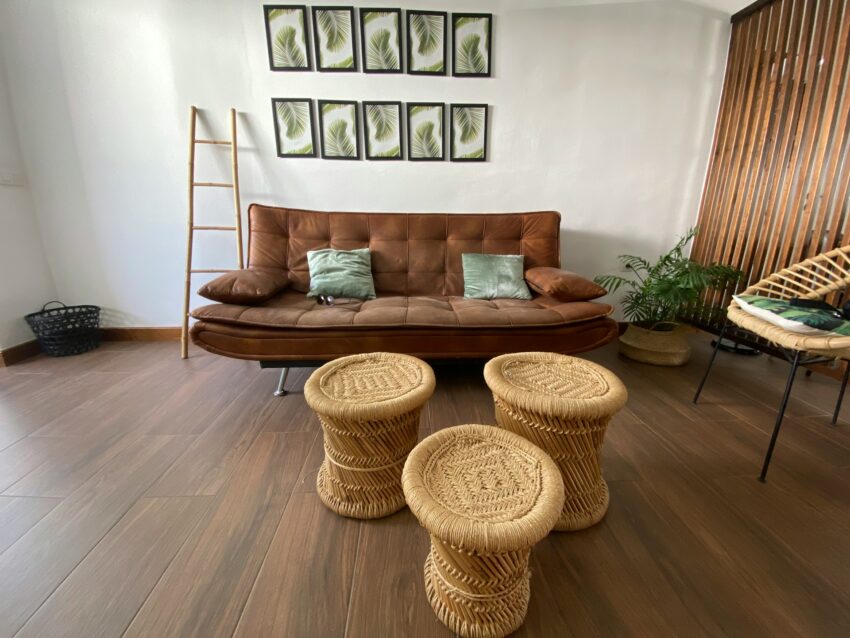Vinyl is a popular flooring choice for many rooms in the home due to its versatility. It’s also available in a wide range of colors, patterns and styles, so it suits many different interior designs.
Let’s take a deeper look into vinyl flooring to help you decide if it’s right for your home.
What is vinyl flooring?
Vinyl is composed of four layers of polyvinyl chloride (PVC) resins, melted and mixed together with fungicides and stabilizers. Each of the layers serves its own purpose:
- The bottom layer gives the flooring stability and its water-resistance properties
- The core makes up the bulk of the flooring, providing strength and structural support
- The design layer is where the pattern and color are printed
- The uppermost wear layer protects the design layer against scratches, scuffs, dents and fading
What types of vinyl flooring are there?
Vinyl flooring products are available as sheets, tiles or planks:
- Vinyl sheet can create a seamless look with minimal joints
- Vinyl tile can imitate ceramic tiles, and can even be installed with grout to give a more realistic look
- Vinyl plank is often used to mimic natural wood floors
When shopping around for vinyl flooring products, you may notice various ‘luxury’ options available. Luxury vinyl plank (LVP) and tile (LVT) can be bought at a slightly higher price point, but many of its main features are enhanced.
What are the main features of vinyl flooring?
Lifespan
Vinyl flooring has an average expected lifespan of around 10 – 20 years. Luxury vinyl products are more likely to last towards the upper end of that estimate, with an expected minimum of 15 – 20 years after installation. As with any flooring material, its lifespan will depend on the location of the floor and the wear and tear that it experiences. Areas with higher foot traffic are likely to wear down quicker than lesser touched spots of the floor.
Durability
Vinyl flooring is very durable, however it is not immune to damage. The wear layer does a good job of projecting the floor against scratches, scuffs and dents, but heavy usage may lead to some visible damage. With vinyl planks or tiles, damage can be easily resolved by replacing the affected area. If vinyl sheet is to get damaged, the entire sheet will need replacing, which can be more costly than replacing a small section of plank or tile.
Water-resistance
The water-resistance of vinyl flooring is one of its main selling points. All vinyl products have good water resistance properties, with some even being completely waterproof. This makes it an ideal flooring material for areas of the home where excess moisture and potential spills are common, such as bathrooms and kitchens.
Soundproofing
Although it isn’t the best flooring choice for soundproofing, many vinyl products are engineered with acoustic properties to reduce sound. For apartments with downstairs neighbors, or multi-storey homes looking to tackle movement noise from higher levels, vinyl flooring can help to soften the sound of footsteps.
How much does vinyl flooring cost?
On average, vinyl flooring can cost anywhere between $1 – $10 per square foot. Some factors that may impact the cost of a vinyl flooring product include:
- The manufacturer / brand
- The quality of the product – luxury vinyl flooring will often be more expensive
- The intricacy of the design
- If a particular feature is enhanced, such as being completely waterproof, or having improved soundproofing properties
Vinyl is a popular flooring choice for good reason. Many homeowners like its level of water-resistance and durability, allowing the same flooring to extend throughout the entire home, meeting the requirements of every room.
Always have vinyl flooring installed by a professional to extend its lifespan and ensure maximum safety.
Powerhouse is a full service home and commercial services company based in Texas.
Linda Barbara has worked in various capacities including as an interior designer, a teacher and the proud owner of a home décor blog, upgradehometutors.com.

